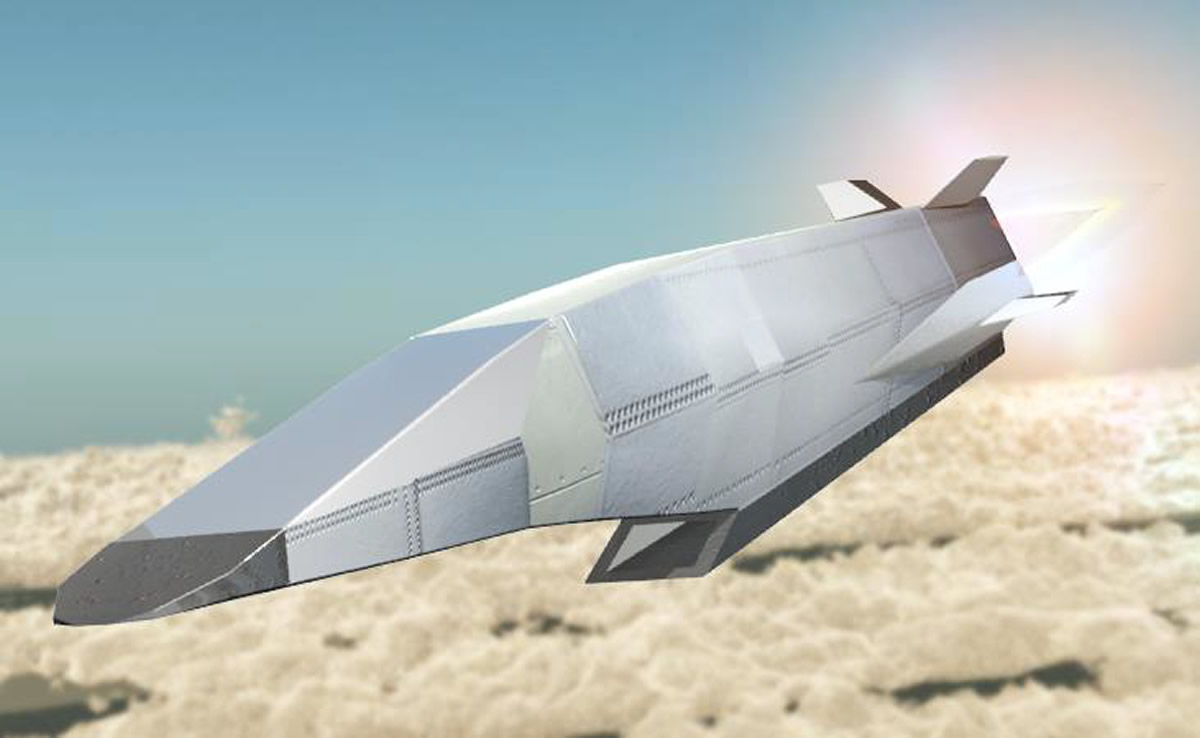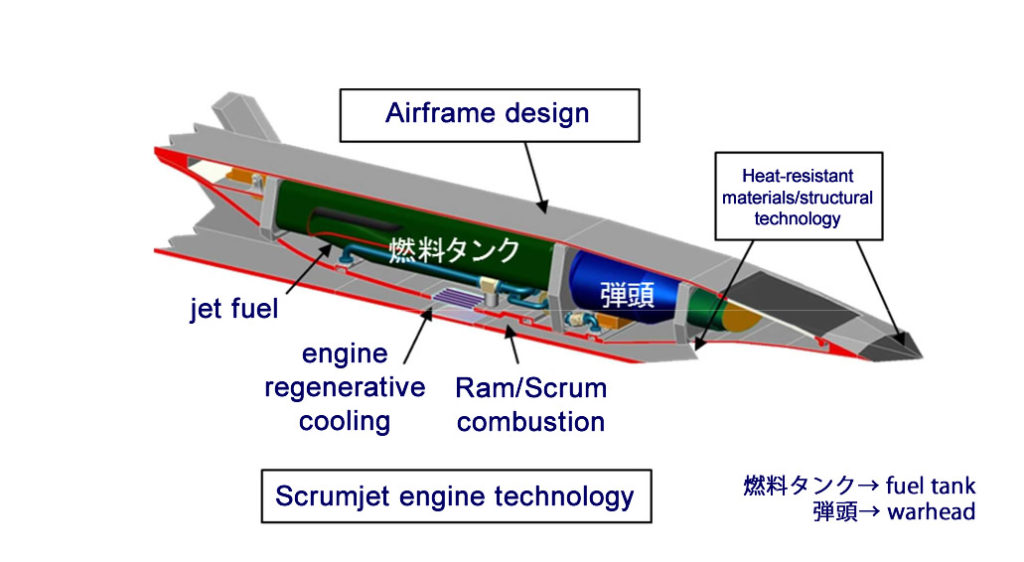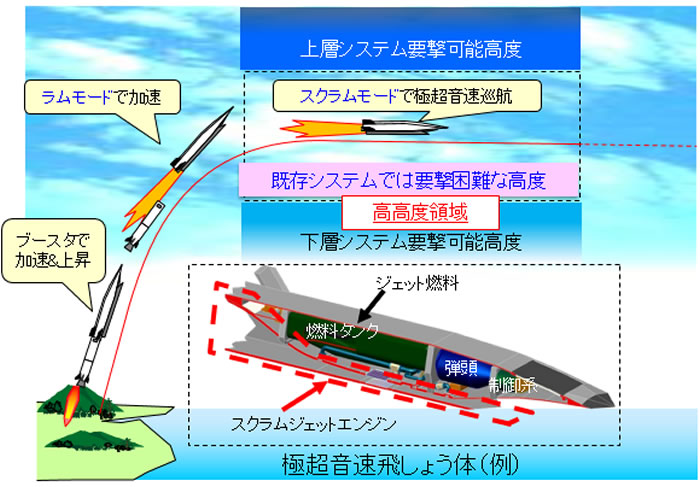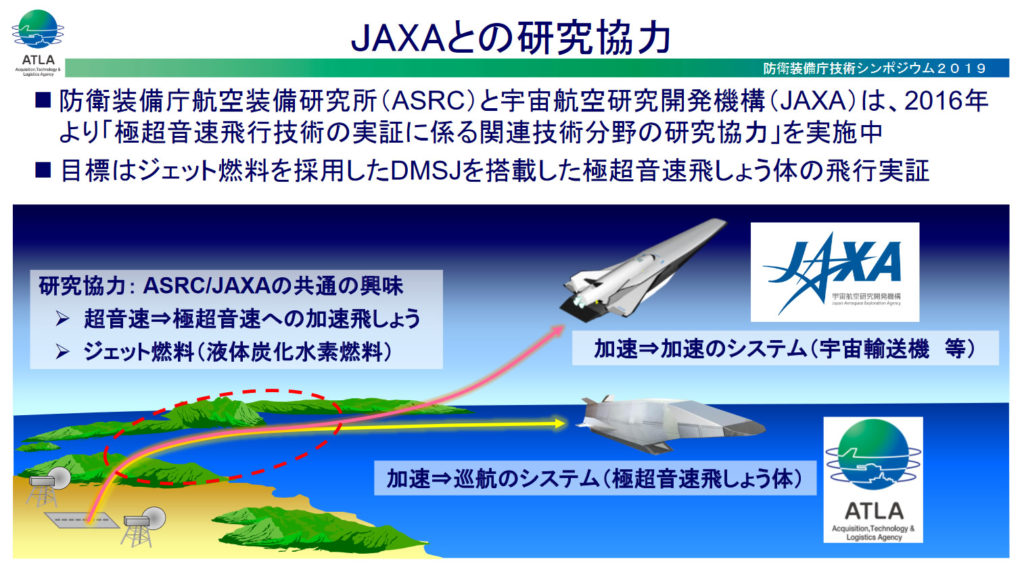Japan’s Acquisition, Technology & Logistics Agency (ATLA) began development of a hypersonic guided missile able to attack both ships or ground targets.
The missile would be a “game changer” according to the Japanese Defense Ministry, and it will use scramjet technology for propulsion.
According to documents released by ATLA, the combined guidance system of satellite and inertial navigation will be used to guide the hypersonic guided missile. Radio and lightwave image seekers will be used to identify targets, and this missile will be capable of all-weather operations.
The missile is expected to be capable of carrying a penetrating warhead to destroy the flight decks of enemy aircraft carriers and a high-density Explosively Formed Penetrator (EFP) warhead to suppress enemies on the ground.
According to the reports, development began in 2019 and it should complete sometime in the 2030s.
ATLA is currently in the development phase of the scramjet engine along with local company Mitsubishi Heavy Industries which won a contract for the prototype engine research.
The aim is to power the missile by a Dual-Mode Scramjet engine (DMSJ), a combination of ramjet and scramjet (supersonic combustion ramjet) engines, to fly at a wide range of speeds, including hypersonic speeds of Mach 5 or higher.
ATLA is now working with Japan Aerospace Exploration Agency (JAXA) to realize the DMSJ.
The DMSJ is expected to have high engine efficiency in a wide range of speeds, between Mach 5 and 15, because the air inhaled from the intake is compressed and combusted at supersonic speed when the missile flying at Mach 5 or higher.
Essentially, for the scramjet engine to operate, the missile first needs to be accelerated to hypersonic speeds, and that’s when it comes in.
However, a large rocket booster would be required to accelerate to hypersonic speeds, which would increase the overall length of the missile, including the booster.
As a result, ATLA planned to combine the capabilities of the ramjet engine, which operates efficiently in the Mach 3 to 5 speed range, with the DMSJ to reduce the proportion of the rocket booster.
And as such, the rocket booster only needs to accelerate the missile to supersonic speeds, between Mach 3 and 5 and then the scramjet activates to cruise.
Hypersonic technology is something that Russia, and even China have made significant progress on, with Russia even already fielding some such weapons. At the same time, both Japan and the US appear to be lagging behind.
Hypersonic technology could be another area in which Washington and Tokyo need to pool their efforts to compete, similarly to suggestions by the Atlantic Council that such an areas should be Artificial Intelligence and unmanned systems.
MORE ON THE TOPIC:








2039-2049
By which time the Russians and Chinese will have even more advanced weaponry to the Japanese and their U.S. masters running behind. LOL.
Muricunts and Major Nose faces are already shitting themselves and denying the capabilities of the Khinzal/Zircon and Avangard hypersonic weapons. So that’s a good thing. they did the same in 2007 with the s400, su35 in early 2000’s, and with kh-101 and with kalibr recently. we all know su35 scares the crap out of turks israelis and muricunt airforces in syria, chases them away from time to time. And we know how effective the new kh101 and kalibr cruise missiles was at pulverizing isis back in 2015-2016.
Mitsubishi is a very powerful force unto itself, they are largely responsible for standing up to the oil companies in the 90’s and introducing electric cars and hybrid adaptations.
It would not surprise me if Japan, the worlds # 3 economy, does not share this tech with the US.